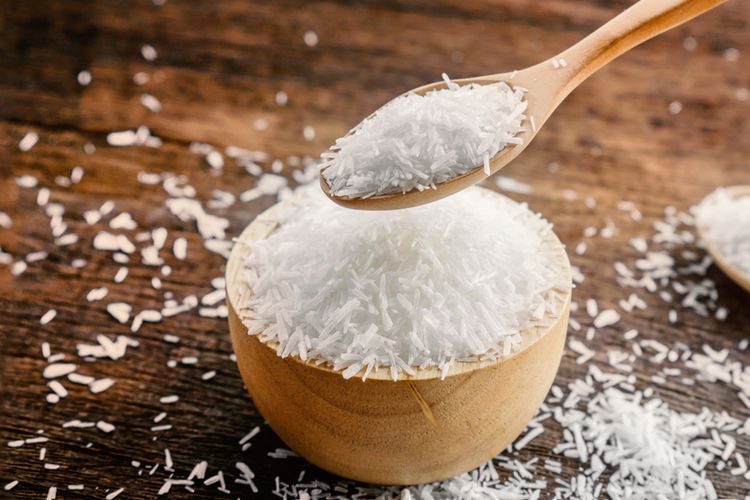KOMPAS.com – MSG or monosodium glutamate is a cooking spice that is often used in Indonesia.
MSG is usually added to various dishes, from soto, chicken soup, to fried rice.
MSG is the abbreviation for monosodium glutamate, a flavor enhancer derived from L-glutamic acid. This acid is a nonessential amino acid, meaning the body can produce it itself without having to obtain it from food.
Also read: The Beginning of Healthy Noodle Products Without Micin, Supporting Healthy Living Since the First
MSG is a white crystalline powder that is odorless and dissolves in water. In the food industry, MSG is known by the code E621. MSG is produced through the fermentation of carbohydrate sources such as sugar beets, sugar cane and molasses.
There is no chemical difference between the glutamic acid found naturally in food and that in MSG. The body cannot differentiate between the two. MSG is known to have umami taste, the fifth taste besides sweet, sour, salty and bitter.
Food flavor enhancer
MSG improves the taste of food by creating an umami sensation that stimulates saliva production, making food taste more delicious. Research shows that MSG can reduce the desire to add salt to food.
In fact, MSG is often used as a salt substitute in low-sodium products such as soups, packaged foods, cold meats, and dairy products.
Why was MSG considered dangerous?
MSG started to get a bad reputation in the 1960s when a doctor wrote a letter to the New England Journal of Medicine about symptoms he experienced after consuming Chinese food.
These symptoms later became known as “Chinese Restaurant Syndrome” which is now called “MSG Symptom Complex” (MSC).
Also read: MSG, flour and sugar are called enemies of the uterus, is that true?
Some early research suggests MSG is highly toxic. However, recent evidence questions the accuracy of these studies due to methodological flaws, such as the use of too high MSG doses or administration methods that are not relevant to food consumption.
Health authorities such as FAO/WHO, FDA, and EFSA now consider MSG safe to consume with a daily intake limit set at 30 mg per kilogram of body weight.
Old research vs new research on the health effects of MSG
The following is a comparison of old research and new research on the effects of MSG on health:
Effects on energy intake
Several old studies claim that MSG can increase calorie intake because it interferes with the leptin hormone which regulates satiety. However, recent data show contradictory results.
 Illustration of monosodium glutamate (MSG), micin.
Illustration of monosodium glutamate (MSG), micin. Some studies find MSG can reduce appetite, while others state MSG can increase food intake.
Obesity and metabolic disorders
Early research linked MSG to insulin resistance and diabetes. However, many studies use inaccurate methods such as injections instead of oral ingestion.






